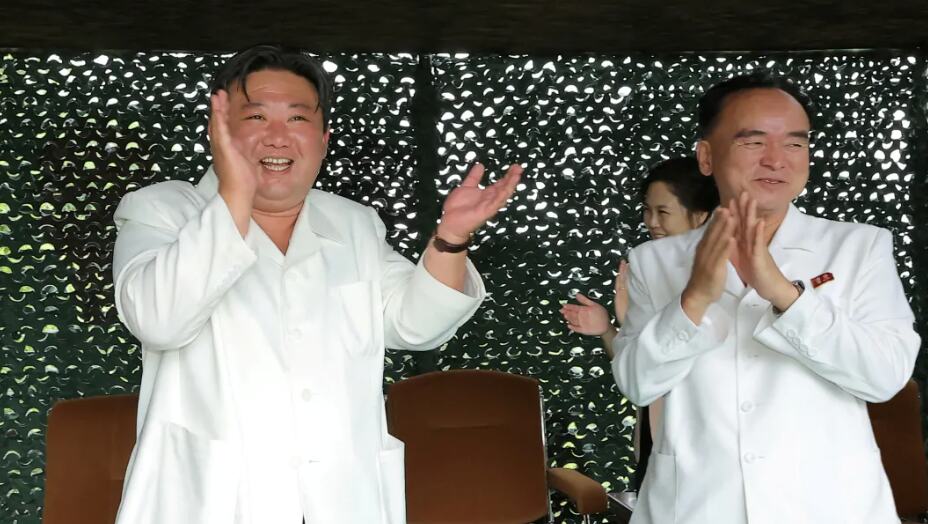North Korea Intensifies Nuclear Capabilities in Response to US Security Commitment
North Korean leader Kim Jong Un has vowed to further bolster his country’s nuclear capabilities in response to recent U.S. steps to strengthen its commitment to ally South Korea. On Wednesday, he supervised the second test flight of a new intercontinental ballistic missile (ICBM) designed to strike the mainland United States.
North Korean leader Kim Jong Un has vowed to further bolster his country’s nuclear capabilities in response to recent U.S. steps to strengthen its commitment to ally South Korea.
On Wednesday, he supervised the second test flight of a new intercontinental ballistic missile (ICBM) designed to strike the mainland United States. Kim suggested North Korea would ramp up weapons testing activities, claiming that the “unstable situation” on the Korean peninsula requires “more intense efforts” to increase their nuclear deterrent.
The launch of the Hwasong-18 - first tested in April and called the most powerful weapon of his nuclear forces - was reported by state media the following day. The road-mobile ICBM has solid propellant, making it more difficult to detect than liquid-fueled missiles.
The missile flew for 74 minutes and a distance of 1,001 kilometers (622 miles) at a maximum altitude of 6,648 kilometers (4,130 miles), before landing in an area off the North’s east coast. South Korea, Japan, and the United States all condemned the launch, with the U.S.
National Security Council spokesperson Adam Hodge stating they would take all necessary steps to ensure their security. Kim responded by promising a “series of stronger military offensive” until the U.S. and South Korea admit “their shameful defeat” and give up their policy.
The United Nations Security Council held an open meeting late Friday afternoon to discuss the ICBM launch, requested by the United States, Albania, France, Japan, Malta, and the United Kingdom.
North Korea has been trying to modernize their missile arsenal - with a multi-warhead missile, a hypersonic weapon, a spy satellite, and a nuclear-powered submarine on their wish list - after Kim’s high-stakes nuclear diplomacy with then-President Donald Trump collapsed in 2019. KCNA accused the U.S. and South Korea of “frantic confrontation attempts” and bringing “a new chain of nuclear crises” to the Korean Peninsula.
The U.S. has since expanded military drills with South Korea and taken steps to enhance “regular visibility” of U.S. strategic assets to the Korean Peninsula to counter the North’s advancing nuclear capabilities.
Experts say Kim is eventually aiming to use his enlarged arsenal to win greater concessions in future diplomacy with the United States, with North Korea having conducted about 100 missile tests since the start of 2022.
Kim Yo Jong - Kim’s sister and senior adviser - has also issued threats of “shocking” consequences in response to what she called provocative U.S. reconnaissance activity near its territory.
The U.S. and South Korean governments have dismissed the North’s accusation and urged it to refrain from escalatory actions.




